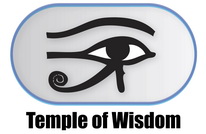
The founding of Virginia and Massachusetts represent two distinct narratives in the early colonial history of the United States. While both colonies were established in the early 17th century, they differed in many significant ways, including their goals, motivations, governance, and social and cultural makeup. This essay will examine the key differences between the founding of Virginia and Massachusetts and highlight their significance in shaping the course of American history.
The founding of Virginia began in 1607 when the Virginia Company of London, a group of investors, sent a group of colonists to establish a settlement in the Chesapeake Bay region of North America. The colony was named after Queen Elizabeth I, who was known as the “Virgin Queen.” The Virginia Company had a primarily economic motive for founding the colony. It hoped to discover gold, silver, and other valuable resources that could be sent back to England to enrich the company’s investors. In addition to finding riches, the Virginia Company also hoped to establish a profitable tobacco trade, which became the primary cash crop of the colony.
The founding of Massachusetts, on the other hand, began in 1620 when a group of English Puritans, known as the Pilgrims, sailed from England to America on the Mayflower. The Pilgrims were fleeing religious persecution in England and sought to establish a colony where they could worship freely. The Pilgrims’ colony was named Plymouth, after the English port from which they had departed. The Pilgrims’ goal was to create a “City upon a Hill,” a Christian utopia based on their interpretation of the Bible.
One of the most significant differences between the founding of Virginia and Massachusetts was their governance structure. Virginia was established as a royal colony, meaning that it was under the direct control of the English Crown. The king appointed a governor to oversee the colony’s affairs, and the governor had broad powers to make laws and levy taxes. Virginia also had a legislative body, the House of Burgesses, which was established in 1619. The House of Burgesses was the first democratically elected legislative body in America and had the power to create laws and levy taxes, subject to the approval of the governor.
In contrast, Massachusetts was established as a self-governing colony, meaning that it had more autonomy and control over its affairs. The Pilgrims created the Mayflower Compact, a document that established a democratic system of government for the colony. Under the Mayflower Compact, the colonists agreed to abide by the laws created by the majority and to elect their leaders. The Pilgrims also established the General Court, a representative assembly that had the power to create laws and levy taxes. The General Court was made up of elected representatives from each town in the colony.
Another significant difference between the founding of Virginia and Massachusetts was their social and cultural makeup. Virginia was primarily a male-dominated society, and most of the early settlers were young, single men who came to America in search of wealth and adventure. Virginia’s economy was based on tobacco farming, which required extensive land and labor. This led to the establishment of large plantations and the development of a system of indentured servitude and later, slavery. Virginia also had a significant Native American population, and the relationship between the settlers and the Native Americans was often fraught with tension and conflict.
In contrast, Massachusetts was a more communal and family-based society. The Pilgrims and other early settlers were primarily families who came to America to establish a new way of life based on their religious beliefs. Massachusetts was not a wealthy colony, and its economy was based on subsistence farming and fishing. The Puritans had a strict moral code and believed in hard work and self-discipline.
Furthermore, another significant difference between the founding of Virginia and Massachusetts was their religious beliefs. Virginia was primarily Anglican, which was the official Church of England. Although there was some religious diversity within Virginia, Anglicanism was the dominant faith, and it was supported by the colonial government. The Anglican Church played a significant role in Virginia’s governance and social structure.
In contrast, Massachusetts was established as a Puritan colony, and religion played a central role in its governance and society. The Puritans believed in a strict interpretation of the Bible and sought to create a society based on their religious beliefs. The Puritans were intolerant of other religions and persecuted those who did not share their faith. This led to the establishment of the Salem Witch Trials in 1692, in which 19 people were executed for witchcraft.
In conclusion, the founding of Virginia and Massachusetts represented two distinct narratives in the early colonial history of the United States. Virginia was established as an economic venture, focused on finding riches and developing a profitable tobacco trade. It was governed as a royal colony, with a hierarchical social structure dominated by wealthy landowners. Massachusetts, on the other hand, was founded as a religious refuge, based on the Puritan belief in a “City upon a Hill.” It was a self-governing colony with a more egalitarian social structure, focused on subsistence farming and fishing. The differences in governance, social structure, and religious beliefs between Virginia and Massachusetts had significant implications for the development of American society and continue to shape the country’s identity today.







